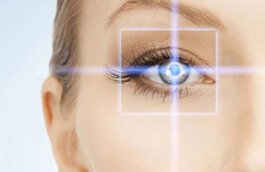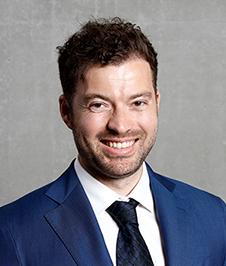CORONA LOCKDOWN: WHAT YOU CAN DO AGAINST INCREASING MYOPIA IN CHILDREN AT HOMESCHOOLING.
Homeschooling - Avoiding Hazards to the Eyes
Little daylight and hours of effort for the eyes on the screen: a Chinese study shows that teaching at home on a computer or tablet seems to worsen myopia in children. In this post, we’ll show you what you can do about it.
Lockdown result: vision deterioration by 0.3 diopters
According to a Chinese screening of 194,904 annual photoscreening tests on 123,535 nearsighted children aged six to eight, myopia worsened by an average of 0.3 diopters during homeschooling. The children’s data were compared with those of the annual examinations for the previous five years.
From 2015 to 2020, myopia increased threefold in young children. The scientists attribute this significant increase to a greater sensitivity to environmental influences. The eyeballs of six to eight year olds are still in the growth phase and are therefore even easier to influence. In contrast, there has been no significant deterioration in vision in older children between the ages of nine and 13. Even if the large-scale study did not include subtleties such as determining the length of the eyeball and the glasses values with an enlarged pupil, the results are reason enough to counteract this development in times of lockdowns and distance learning.
Daylight can improve myopia in children
A study from Taiwan on all school children in grades 1 to 6 in the period from 2001 to 2015 showed that just 120 minutes outdoors in daylight during school time was enough to reverse the worsening of myopia in children. Since the introduction of this outdoor time during the five-year test period of the study, the increasing trend towards increased myopia in school children has been slowed down. Since then, it has been falling steadily by five to eight percent.

Help for the child eye in lockdown
The two studies show that the combination of lots of screen time and too little time outdoors promotes myopia in children. However, in these extraordinary times we are living in right now, it is inevitable that children will spend long hours at the computer. Fortunately, there are some things parents can do to prevent their worsening nearsightedness from getting worse. We have put together the five most effective tips for you below.
Top 5 against worsening myopia in children
1. Desk in front of the window
The more daylight and therefore more luminance reaches your child’s eyes, the more positive it has on their eyesight. You should therefore place your child’s desk as close to a large window as possible so that they can look straight ahead. The daylight directly from the front not only strengthens eyesight and prevents worsening of myopia. It also ensures uniform lighting during video chats with the teachers during homeschooling.
By positioning it by the window, the stressed children’s eyes can relax again and again by switching between close-up view of the screen and distant view outside. If positioning in front of a window is not possible, full-spectrum daylight lamps that imitate natural light are an alternative.
2. Screen? Yes, but by a margin
Make sure that the screen your child is working on is big enough. This means that it can keep a half a meter distance or arm’s length between the eyes and the screen. In the case of a workstation for children, the height of the screen should also be set so that the view is forward instead of up or down.
3. At least 120 minutes outdoors.
When children do not get enough daylight, their nearsightedness is 5 times more likely to get worse. In combination with a lot of time on the screen, up to 16 times as much. In return, daylight slows down the growth in length of the eyeball and thus the increase in myopia. So playing outdoors is not only good for your physical condition and social behavior, but also for eye health. Go for walks or other outdoor activities together when you can’t just send your child outside to play in the playground for two hours.
4. In leisure time: limit TV and display times
Also in leisure time and especially in times of lockdowns and homeschooling, the eyes of children stick to displays: Like a study by the DAK and the German Center for Addiction Issues in Children and Adolescents at the Hamburg University Hospital -Eppendorf (UKE) shows that the time children spent using Nintendo, Xbox or Playstation increased by up to 75 percent in the first lockdown in 2020. The use of the small displays of smartphones and tablets is also not beneficial for the eyes, as they are constantly focused when writing messages, for example. This favors the growth of the eyeball and focuses the light in front of the retina instead of on top.
So set clear limits to the display time in your free time. Children under four years of age should not sit in front of the screen at all, children up to six years of age a maximum of half an hour. A maximum of one hour is recommended for children up to ten years of age, and around two hours a day for older children.
5. Audios and visual games
If going outside is not possible at the moment and your child wants to reach for a smartphone or tablet again, radio plays and audio books have proven their worth. The entertainment factor is great, the imagination is stimulated and the eyes are relaxed.
As already mentioned, switching from near and far vision is important to improve eyesight. Old vision games like “I see what you can’t see”, little treasure hunts at home or, even better, outdoors also require a change from near to far vision without exerting yourself.
Sources: Progression of Myopia in School-Aged Children After COVID-19 Home Confinement, © 2021 Wang J et al. JAMA Ophthalmology, (https://jamanetwork.com/journals/jamaophthalmology/fullarticle/2774808); Increased Time Outdoors Is Followed by Reversal of the Long-Term Trend to Reduced Visual Acuity in Taiwan Primary School Student, Wu, C.-T. Chen, Pei-Chang Wu et al. © American Academy of Ophthalmology (https://www.aaojournal.org/article/S0161-6420(20)30139-1/fulltext); Press release February 2021 of the Ophthalmological Society (DOG) (https://www.dog.org/wp-content/uploads/2021/02/PM-Kindliche-Kurzsichtigkeit-in-der-Pandemie_Februar_V.pdf); Biermann Medicine – Compact Pediatric and Adolescent Medicine from February 18, 2021 (https://biermann-medizin.de/studie-lockdown-foerdert-kurzsichtigkeit-bei-kinder/?cn-reloaded=1); Myopia prophylaxis – Preventing myopia, Dr. med. Wolf A. Lagrèze, Frank Schaeffel, Deutsches Ärzteblatt Int. 2017; 114: 575-80. DOI: 10.3238 / arztebl.2017.0575 (https://www.aerzteblatt.de/archiv/193148/Myopieprophylaxe); DAK health (https://www.dak.de/dak/bundesthemen/computerspielsucht-2296282.html#/)
Are you also interested in a treatment at EuroEyes or would you like to find out more about us? Then please contact our service center or fill out our contact form. We look forward to you!
Contact form (click here)
+49 40 348 09 29 0 – service center in Germany (English, German and Chinese)
Monday to Friday: 08:00 – 19:00
Saturday: 09:00 – 14:00
About EuroEyes
The EuroEyes Clinic Group is a globally successful company that was founded over 25 years ago in Hamburg and has its headquarters there to this day. In addition to locations throughout Germany, EuroEyes is also represented in China and Denmark. The clinic offers patients the entire spectrum of refractive surgery for the correction of ametropia. With the most modern eye laser and lens surgery procedures EuroEyes treats over 25,000 patients with myopia or farsightedness , astigmatism , presbyopia or cataracts every year . The interventions enable the start of a life free of glasses and contact lenses without impairment of vision and quality of vision.


















Join our Newsletter